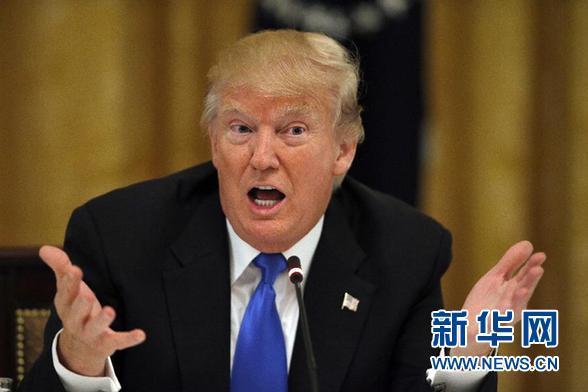Trump on geo-political Iran mission
- By Sajjad Malik
 0 Comment(s)
0 Comment(s) Print
Print E-mail China.org.cn, May 27, 2018
E-mail China.org.cn, May 27, 2018

Encouraged by the apparent success of provocative diplomacy against North Korea, the U.S. administration is trying to apply the same strategy towards Iran. The punch line is to impose crippling economic sanctions and wait until the opponent ducks.
Secretary of State Mike Pompeo in a policy address at the Heritage Foundation outlined the new policy towards Iran. It is a follow up of the announcement by President Donald Trump earlier this month to withdraw from the nuclear agreement of 2015.
Pompeo read out a list of at least 12 conditions to rewrite the agreement. The focus is not just on the nuclear issue but extends far beyond its scope to include issues linked with the regional security calculations. Clearly, now the emphasis is not just to curtail Iran's nuclear ambitions but also to force it to change policies towards the region.
For example, Pompeo demanded that Iran should withdraw all forces under its command from Syria, and end support of the Houthi militias. It should also respect the sovereignty of Iraq and disband proxy armed groups in that country. Iran has also been asked to release all foreign hostages and stop the alleged support for terrorist groups the region.
Other demands like asking Tehran to come clean on all previous nuclear activities and grant complete access to International Atomic Energy Agency (IAEA) experts are old and are also addressed to a greater extent in the Joint Comprehensive Plan of Action (JCPOA).
But the ultimatum to pull out its resources from Syria is new and the objective is to address the concerns of U.S. allies in the region.
Iran has successfully created a strategic corridor extending to Lebanon through Syria. It is upsetting for its rivals as it provides Iran with a vantage position to put a half girdle around Saudi Arabia on the one hand and threaten Israel from multiple points on the other hand. The situation becomes further untenable to America's allies if we add Yemen and Qatar to Iran's sphere of influence.
Pompeo's list of demands is nuclear "plus" in nature. Iran is being asked to change its behavior under new rules of game, or prepare for the "strongest sanctions in history." Pompeo also warned that Iran would be battling to keep its economy going once the sanctions were effective.
The tone of speech at the Heritage Foundation was threatening and intrusive. Things have changed in Washington after Rex Tillerson who was relieved of the job due to an unwillingness to fall in line with Trump and follow his new policy towards Iran.
It would have been difficult for any sovereign country to accede to such demands, which ask for complete surrender without a fight. Neither was it expected from Iran to acquiesce to them. Foreign Minister Javad Zarif rejected them. He tweeted that the U.S. was "regressing to old habits" and it was "imprisoned by delusions [and] failed policies."
Now the U.S. administration is expected to start the process to re-impose sanctions which were lifted after the nuclear deal was signed. According to experts, the sanctions cannot become operational at once as they are subject to three-month and six-month wind-down periods.
It will not be easy to win international support on new sanctions. The deal was not just between the U.S. and Iran but the U.K., France, China and Russia -- plus Germany were also part of it. All of them have criticized Trump's decision to scuttle it.
It is likely that these countries will abide by the agreement even without the United States, which will make it impossible to use the UN forum to impose sanctions. Some of the biggest companies from these countries are also doing business with Tehran. A big question looms over how they can just abandon the agreements or investment plans.
Iran is also one of the largest oil and gas producers with buyers like China, India and several other Asian and European nations. How can America force China or even India to stop oil purchases? Hence, it will not be easy to enforce the toughest embargoes.
Trump is trying to appease regional allies, especially Israel, by using the nuclear issue as a cover. The U.S. long term objective seems to be to force the leadership of Iran to make drastic changes in its security and foreign policies or bring about regime change.
Iran must be weakened to achieve either of the objectives. The easiest way at this stage is by putting economic pressure and squeezing the space around it. But the easiest may not be easy as there is a lot of difference between Iran and North Korea.
Sajjad Malik is a columnist with China.org.cn. For more information please visit:
http://www.china.org.cn/opinion/SajjadMalik.htm
Opinion articles reflect the views of their authors, not necessarily those of China.org.cn.






Go to Forum >>0 Comment(s)